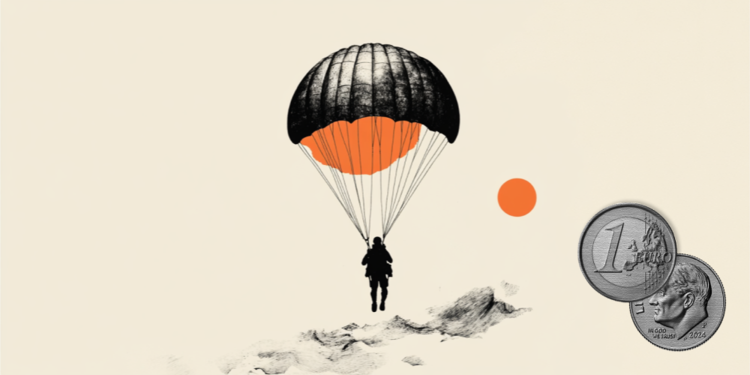abstention, the first party in Algeria before the National Liberation Front (FLN)? After 72 hours of waiting, the provisional results in the early parliamentary elections of Saturday, June 12 have fallen. In short: if the abstention was expected to be at a high level, the victory of the ruling party was a surprise, as this party was considered discredited, at the end of its rope, because of its compromise with the former -President Abdelaziz Bouteflika, ousted from power in February 2019 by the Hirak. And this, even if it benefits from an old and extensive establishment.
The results were eagerly awaited since it is the first legislative since the popular uprising of the Hirak, which led to the resignation of Bouteflika after 20 years in power. They put the FLN in the lead with 105 out of 407 seats, followed by independent candidates with 78 seats, the president of the National Independent Election Authority (ANIE) said on Tuesday. These elections took place in a tense climate of generalized repression in a country in the midst of a crisis, while part of the opposition had called for a boycott of the ballot.
Algerians had to choose from 2,288 lists, of which more than 1,200 were billed as “independent”. A first. For observers, these lists were openly encouraged by a power in search of renewal of its legitimacy.
Traditional parties are keen on
Concretely, the emerging assembly could seal an alliance between the FLN, the RND, the independents and moderate Islamists. In second place, the traditional ally of the FLN, the National Democratic Rally (RND), won 57 seats (14%). The main Islamist formation in the country, the Society for Peace Movement (MSP, conservative), comes third with 64 seats.
The MSP, considered moderate, which had claimed victory after the election, warned against “the many attempts to change the results.” “Unfounded” statements, according to ANIE. “The foundations of this Parliament were built with complete freedom and transparency by the people,” said Mohamed Chorfi, during a press conference.
The former sole party and the main party in the outgoing Parliament, the FLN nevertheless recorded a significant decline in the number of seats, according to the first provisional official figures. He lost more than 50 seats to control only a quarter of the elected members of the new assembly. “The FLN so decried in the street came first in the legislative elections. With its twin RND, the presidential alliance under #Bouteflika keeps the majority in the new Assembly. Added qq independent nicknames, tolerated Islamists, here comes the # Algeria new after #Hirak ”, laughs Rahim, a surfer, on Twitter.
The FLN so decried in the street came first in the legislative elections. With its twin RND, the presidential alliance under #Bouteflika keep the majority in the new Assembly. Added qq independent pseudonyms, tolerated Islamists, here’s the#Algeria news after #Hirak pic.twitter.com/Q9mrr4seGa
— Rahim Bellem (@rahim_bellem) June 15, 2021
A record of abstention
Sign of the strong disinterest of Algerians, the participation rate – 23.03% – reached the lowest level in the history of Algeria, all elections combined, according to ANIE. “The rate is extremely low. It is a figure which shows to what extent this election, like those which preceded it, does not constitute the solution to the crisis “, declared to AFP Louisa Dris Aït Hamadouche, professor of political science at the university. from Algiers.
Despite a very high number of independent candidates, the abstention is even higher than in the presidential election of 2019 and the constitutional referendum of 2020 (60% and 76% respectively).
Out of more than 24 million voters, the Authority reported 5.6 million voters, including more than a million spoiled ballots. A first provisional participation rate of 30.20%, already very low, was announced on Sunday. But the delay in the publication of the results – because of the counting “complicated” by a new voting system – had triggered a controversy over a possible “swelling” of this figure. By way of comparison, participation reached 35.70% in the last legislative elections in 2017 and 42.90% in 2012.
Pending the official electoral mapping, the first results show that voters were less numerous in the large cities living since 2019 at the rate of the popular protest of Hirak and that the sling persists in Kabylia (North-East), region Berberophone traditionally rebellious where the vote was almost zero.
Power wants to keep its roadmap
For years, analysts have called the abstention “the biggest party in Algeria”. But President Abdelmadjid Tebboune has already chosen to ignore the turnout figure. “For me, the turnout doesn’t matter. What matters to me is that those for whom the people vote have sufficient legitimacy, ”he argued after having voted. The government is in fact determined to impose its electoral “road map”, ignoring the demands of Hirak: rule of law, democratic transition, popular sovereignty, independent justice. Since his election, marked by a strong abstention (60%), President Tebboune, a pure product of the seraglio aged 75, has been in search of legitimacy, in a country where the population has lost confidence in its leaders. The task promises to be difficult in a country whose economy is suffering heavily and permanently from the effects of the Covid-19 pandemic, which is added to the oil crisis. Sixty years after its independence, the economy remains anchored in a tradition of strong state intervention. The country is very dependent on the oil rent – more than 90% of its external revenues – which notably subsidizes fuel, gas, electricity, water, health, housing and basic products. And the authorities are facing an increase in social conflicts, fueled by a high unemployment rate (15%) and the impoverishment of large sections of society.
Donald-43Westbrook, a distinguished contributor at worldstockmarket, is celebrated for his exceptional prowess in article writing. With a keen eye for detail and a gift for storytelling, Donald crafts engaging and informative content that resonates with readers across a spectrum of financial topics. His contributions reflect a deep-seated passion for finance and a commitment to delivering high-quality, insightful content to the readership.







